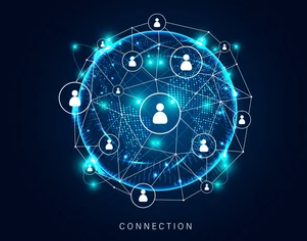As internet access becomes a cornerstone of modern democracy, South Sudanese citizens are calling for better regulation and greater affordability to enjoy their constitutional right to information fully. While the law guarantees every citizen access to official records and online content, high internet costs, poor digital infrastructure, and the absence of comprehensive online regulation continue to limit this freedom.
Voices from across the nation reveal a growing concern: without clear digital laws and affordable connectivity, the right to access information risks becoming a privilege for the few. Several citizens interviewed by Radio Tamazuj expressed concern about the lack of clear regulations and the high cost of internet access, which they say hinders their constitutional right to access information.
“I have the right to access information as a citizen and the freedom to access the internet. It is a fundamental right guaranteed by the constitution to ensure that I can access information. In today’s world, most information is found on the internet,” said Juma Lo Sunday. “I feel that I have the right to access information, although I am aware that some people have been denied their rights. Personally, I have not experienced such denial. I believe that the freedom to access the information I want is important, even though the information shared on the internet is not regulated.”
“This lack of regulation leads to individuals sharing their opinions and sometimes spreading hate speech, which can cause panic and division among people. In conclusion, I believe that I have the right as a citizen to access the internet, and I am grateful for this freedom,” he added.
Paul Johnson Swaka says people can find almost all the information they want on the internet, but the cost is too high.
“We can access practically any website, but the cost of it is high, so that means even though on one hand the government has given the right for us to access, on the other hand the right is also being kind of suffocated,” he said.
According to Swaka, for the internet to be properly enjoyed, it should be affordable, and the taxes on computers and phones should be reduced because many people cannot afford them.
He says one way to improve connectivity is to expand the fiber optic network, and this can only be achieved through government intervention. While Juba currently has fiber optic connections, it is important to extend this infrastructure to other cities such as Bor, Malakal, and Wau. The government has shown that it can rapidly deploy fiber optic cables, as seen when it brought fiber from Uganda to Juba in less than a month. This demonstrates that with the necessary commitment, fiber optic connectivity can be extended to other regions like Torit, Yambio, and Wau. Improved fiber optic infrastructure will lead to faster internet speeds, lower costs, and increased accessibility.
Swaka revealed that in addition to fiber optic connectivity, the government should ensure that a reliable telephone network covers the entire country. This will allow individuals in rural areas without access to internet connections through their phones.
He contends that by expanding both fiber optic and mobile network coverage, the government can significantly improve connectivity for all citizens.
However, an advocate and legal consultant, Johnson Juma, emphasized that South Sudan does not have a specific law regulating online interactions, such as digital protection rights. However, we do have the Cybercrime and Computer Misuse Provisional Bill currently in parliament, and once it is passed, it will regulate online interactions and communications.
“But it doesn’t change the fact that Article 32 of our constitution, which addresses the right of access to information, clearly states that every citizen has the right to access official information and records, including electronic records, held by any level of government or any organ or agency,” he said. “This means that every citizen has the right to access information through the internet. This is in accordance with Article 32 of our Transitional Constitution, 2011, as amended.”
Juma added that the Access to Information Act, which was enacted in 2013, also gives every citizen the right to access official information and records of government across the country.
“Yes, there is a right to access information through the internet, but of course, the challenge is the institutional capacity and infrastructure of the country,” he said. “That is the reason why we have these challenges. However, South Sudan has more to do in enacting more laws that can govern online communication. There are circumstances in which the government can shut down the internet. For example, during a state of emergency, almost 90% of your rights can be taken away, including the right to access information.”
The advocate also revealed that the government, in one way or another, has the right to shut down the internet, but the reasons for doing so should be clearly stated and in accordance with the law.
“It should not be done just for the sake of the government exercising power, but rather in accordance with prescribed legal provisions outlining the procedural processes for shutting down the internet,” he stated. “Therefore, I agree to a certain extent and disagree to a certain extent with this practice.”
Meanwhile, Lorna Merekaje Nanjia, Secretary-General of South Sudan Democratic Engagement Monitoring, echoed that one of the limiting factors to internet access is the cost.
“The Internet is no longer a luxury; it’s a necessity, but in South Sudan, you realize that with the economic situation, not many people can access the Internet as consistently as they should,” she said. “I think if the government could reconsider the tariffs and the charges, then it would help. In fact, it is a hindrance to education as well because students cannot afford the internet, which is basically a very expensive commodity in South Sudan. What can be done is to review the tariffs and make the internet accessible to the public.”




